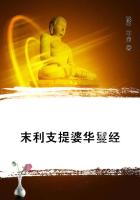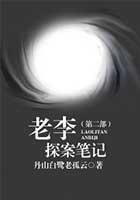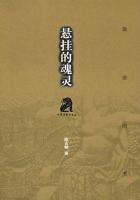In each of these cases the practice acts to the prejudice of the department. In order to escape the tax on delivery, which varies from two cents to one cent a letter, all men in trade, and many who are not in trade, hold office boxes; consequently immense space is required. The space given at Chicago, both to the public without and to the official within, for such delivery, is more than four times that required at Liverpool for the same purpose. But Liverpool is three times the size of Chicago. The corps of clerks required for the window delivery is very great, and the whole affair is cumbrous in the extreme. The letters at most offices are given out through little windows, to which the inquirer is obliged to stoop. There he finds himself opposite to a pane of glass with a little hole, and when the clerk within shakes his head at him, he rarely believes but what his letters are there if he could only reach them. But in the second case, the tax on the delivery, which is intended simply to pay the wages of the men who take them out, is paid with a bad grace; it robs the letter of its charm, and forces it to present itself in the guise of a burden: it makes that disagreeable which for its own sake the post-office should strive in every way to make agreeable. This practice, moreover, operates as a direct prevention to a class of correspondence which furnishes in England a large proportion of the revenue of the post-office.
Mercantile houses in our large cities send out thousands of trade circulars, paying postage on them; but such circulars would not be received, either in England or elsewhere, if a demand for postage were made on their delivery. Who does not receive these circulars in our country by the dozen, consigning them generally to the waste-paper basket, after a most cursory inspection? As regards the sender, the transaction seems to us often to be very vain; but the post-office gets its penny. So also would the American post-office get its three cents.
But the main objection in my eyes to the American post-office system is this, that it is not brought nearer to the poorer classes.
Everybody writes or can write in America, and therefore the correspondence of their millions should be, million for million, at any rate equal to ours. But it is not so; and this I think comes from the fact that communication by post-office is not made easy to the people generally. Such communication is not found to be easy by a man who has to attend at a post-office window on the chance of receiving a letter. When no arrangement more comfortable than that is provided, the post-office will be used for the necessities of letter writing, but will not be esteemed as a luxury. And thus not only do the people lose a comfort which they might enjoy, but the post-office also loses that revenue which it might make.
I have said that the correspondence circulating in the United States is less than that of the United Kingdom. In making any comparison between them, I am obliged to arrive at facts, or rather at the probabilities of facts, in a somewhat circuitous mode, as the Americans have kept no account of the number of letters which pass through their post-offices in a year; we can, however, make an estimate, which, if incorrect, shall not at any rate be incorrect against them. The gross postal revenue of the United States for the year ended June 30th, 1861, was in round figures 1,700,000l. This was the amount actually cashed, exclusive of a sum of 140,000l. paid to the post-office by the government for the carriage of what is called in that country free mail matter; otherwise, books, letters, and parcels franked by members of Congress. The gross postal revenue of the United Kingdom was in the last year, in round figures, 3,358,000l., exclusive of a sum of 179,000l. claimed as earned for carrying official postage, and also exclusive of 127,866l., that being the amount of money order commissions, which in this country is considered a part of the post-office revenue. In the United States there is at present no money order office. In the United Kingdom the sum of 3,358,000l. was earned by the conveyance and delivery of 593,000,000 of letters, 73,000,000 of newspapers, 12,000,000 of books. What number of each was conveyed through the post in the United States we have no means of knowing; but presuming the average rate of postage on each letter in the States to be the same as it is in England, and presuming also that letters, newspapers, and books circulated in the same proportion there as they do with us, the sum above named of 1,700,000l. will have been earned by carrying about 300,000,000 of letters. But the average rate of postage in the States is in fact higher than it is in England. The ordinary single rate of postage there is three cents, or three half-pence, whereas with us it is a penny; and if three half-pence might be taken as the average rate in the United States, the number of letters would be reduced from 300,000,000 to 200,000,000 a year. There is, however, a class of letters which in the States are passed through the post-office at the rate of one half-penny a letter, whereas there is no rate of postage with us less than a penny. Taking these half-penny letters into consideration, I am disposed to regard the average rate of American postage at about five farthings, which would give the number of letters at 250,000,000. We shall at any rate be safe in saying that the number is considerably less than 300,000,000, and that it does not amount to half the number circulated with us. But the difference between our population and their population is not great.
The population of the States during the year in question was about 27,000,000, exclusive of slaves, and that of the British Isles was about 29,000,000. No doubt in the year named the correspondence of the States had been somewhat disturbed by the rebellion; but that disturbance, up to the end of June, 1861, had been very trifling.















